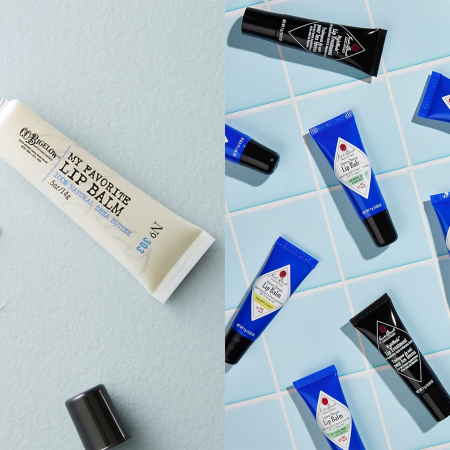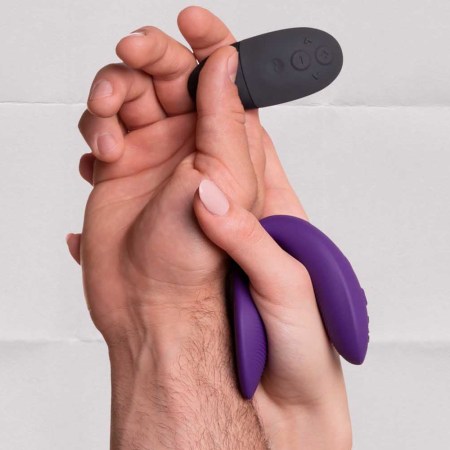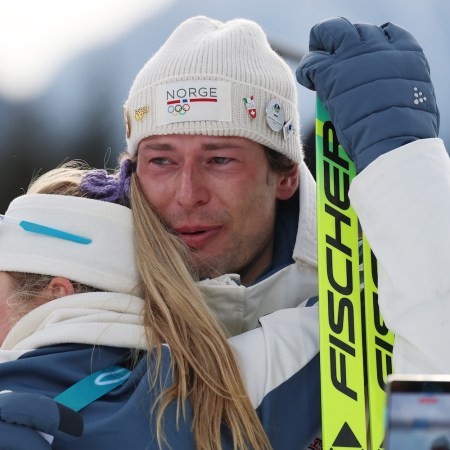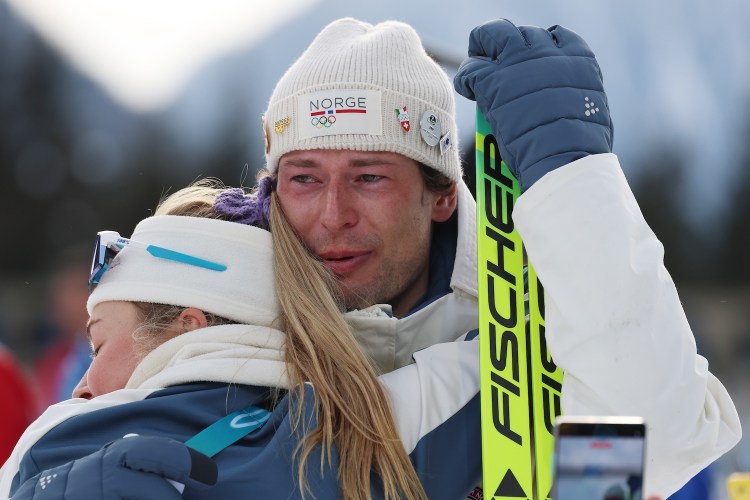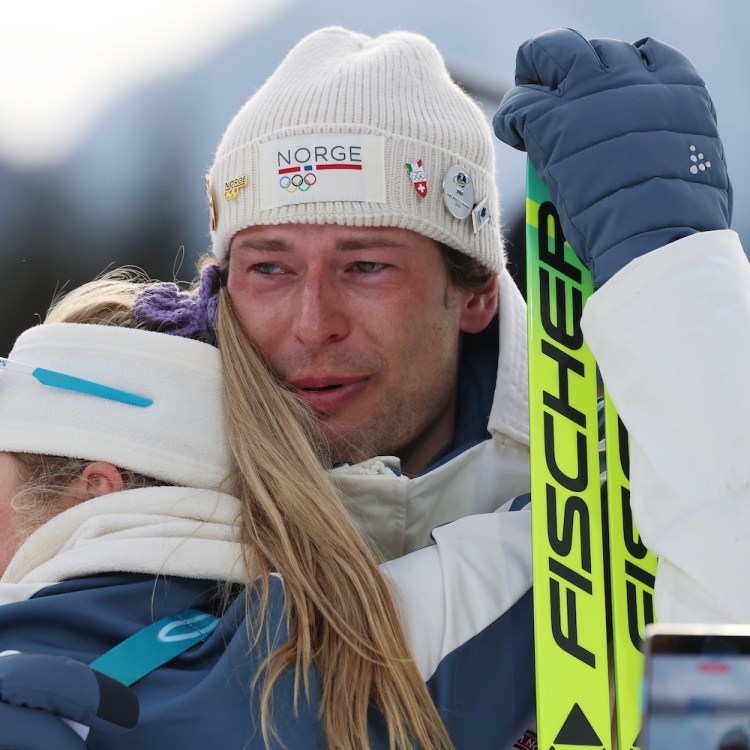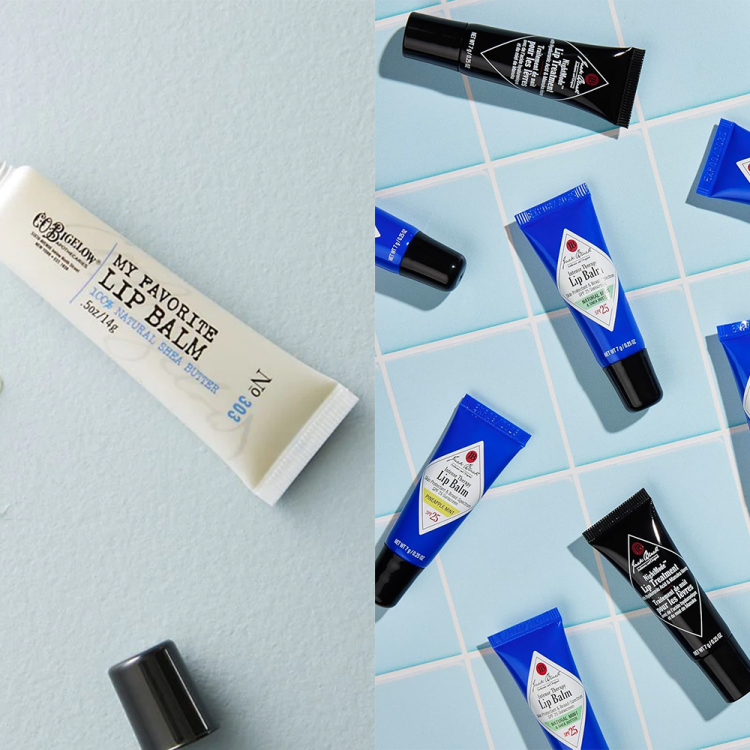In Parks and Rec, Rob Lowe’s Chris Traeger is a perennially positive, supplement-popping 45-year-old who glides through the rooms of Pawnee City Hall with golden retriever energy. He brings vegetable loaves to birthday parties, regularly runs 10 miles during his lunch breaks and touts just 2.8% body fat. In Season 2 of the show, Traeger reveals his life’s goal: to live to 150.
“Scientists believe that the first human being to live to a 150 years has already been born … I believe I am that human being.” At first, it sounds like just another quotable line from a show that’s famous for them. Traeger isn’t to be taken seriously, after all. One of his other signature adages is simply “Stop … pooping.” (On the exceedingly rare occasions that Traeger’s body fails him, he lands in a dark place.)
Believe it or not, though, Traeger’s right. At least one scientist has been predicting humankind’s potential to live to 150 for the better part of a decade, a man who’s furthered the notion of “aging as disease” since he arrived at MIT in the late 1990s. That would be Australian Dr. David Sinclair, a biology rockstar and former Time 100 honoree with an Order of Australia (Down Under’s version of knighthood), and his own genetics lab at Harvard Medical School.
In September of last year, Dr. Sinclair released Lifespan: Why We Age and Why We Don’t Have To. It’s an explosive call to arms detailing Dr. Sinclair’s core belief, which he’s spent decades researching: most humans leave decades of high-quality life on the table simply because society doesn’t afford aging the same attention and dollars it reserves for other health crises like cancer and heart disease. The book is one part memoir (Dr. Sinclair recalls the drawn-out final decades of his mother and grandmother’s lives), one part crash-course in epigenetics (we hold far more in common with yeast cells than the common person knows) and one part sneak peek into the advancements being made in the world’s preeminent genetics labs (Dr. Sinclair’s team has successfully cured blindness in mice).
Most refreshingly, though, Lifespan delights in giving answers. On top of the many science-fiction-esque wonders on display at Harvard Medical School each week (Dr. Sinclair is a pioneer of a practice called “cellular programming,” which effectively means resetting cells back to a younger age), the book includes functional day-to-day advice on how the layman or woman can activate “survival” processes in their epigenome, engaging specific sirtuin proteins (a class of protein that helps regulate cellular aging) to help foster greater longevity.
Basically, Sinclair’s hypothesis is that eating a certain way, working out a certain way and exposure to a certain kind of temperature can make living past 100 a relative breeze. We recently caught up with Dr. Sinclair to discuss his book, intermittent fasting, Benjamin Button and more.
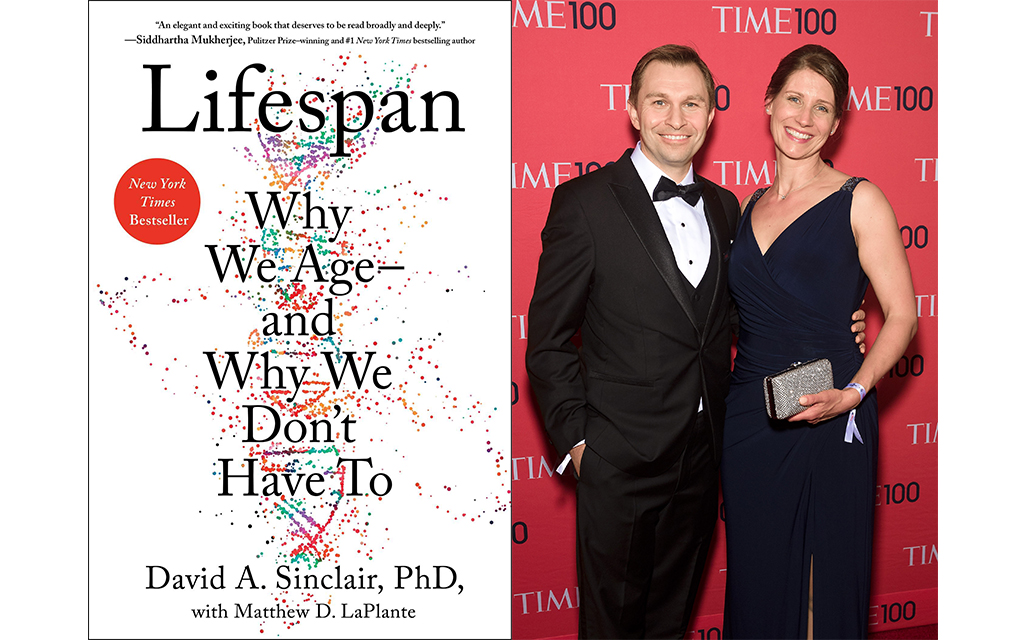
InsideHook: This book definitely doesn’t mince concepts or words. Why was it important to you to write so boldly on “aging as a disease”?
Dr. David A. Sinclair: The world is in a stupor when it comes to aging. There’s a blind spot. I wrote the book to shake things up, and hopefully wake up those who don’t think aging is important or worth working on. We focus as a society far too much on the end consequence of aging, playing whack-a-mole with these diseases that kill us. We ignore what’s actually driving these diseases. The more we study aging, though, the more we realize that the diseases we treat are all manifestations of an underlying process. And it’s treatable.
Some of your peers in the field have said it isn’t “a good look” to be so declarative in your predictions on aging. Have they changed their tune since the book was released?
I haven’t had any criticism from colleagues since the book came out. Either they haven’t read it, or they’re okay with my arguments. But also, the world is changing. What used to be considered crazy 10 years ago is no longer crazy. For example, scientists didn’t used to say the phrase “reversal of aging.” But now, it’s a fact that’s doable. Our field has proven that many aspects of aging are reversible, including blindness. It’s also partly that I was ahead of the curve, and that things which were once forbidden are now in the realm of discussion and debate.
I’m fascinated by the cellular reprogramming work your lab has done. In the book, you invoke F. Scott Fitzgerald’s “Benjamin Button” story to describe how a 50-year-old could soon begin a routine that will have him/her feeling and looking 30 again. Are we actually close to seeing that sort of treatment in the developed world?
The first thing to say is we now understand that changes in your lifestyle can dramatically improve your age and physiology. We used to think that aging was just something that was in our genes, something that we couldn’t modify. But very rapidly, within months of changing diet and exercise, you can reverse many aspects of aging. It’s never too late, unless you’re on your last legs. The fact that it’s that easy to slow down and reverse aspects of aging — just with lifestyle changes — totally fits with our understanding of molecular mechanisms. We should be able to slow aging even better with the reprogramming of cells. I see the work we’ve done as a proof of concept. While it’s true that I’m working hard towards restoring eyesight in people who’ve lost their vision, it’s really just the beginning. This work is proof that it’s possible to restore the age of a complex tissue. In the same way that the Wright brothers weren’t building rockets to the moon, they could at least imagine that one day it would be possible. We’ve shown that there is a backup copy of a youthful epigenome that we can turn on to reset the cell and get it to work again. If that’s doable in the eye, it would be rather pessimistic to say we were just lucky to choose the right body part for this to work.
High-intensity training is one of the practices you cite as vital to this process. What about it encourages longevity genes?
We’ve found that high-intensity training will induce the sirtuin defenses in the body, similar to what intermittent fasting does. When those genes come on, they defend the cell against diseases, and aging itself. When we don’t engage those sirtuin genes, we don’t reap the benefits. High-intensity training is particularly good at turning on the sirtuins, because it encourages a hypoxic response, which we’ve shown leads to the activation of these defense mechanisms. While walking is good, it’s not as good as doing high-intensity training.
I’m glad you mentioned intermittent fasting, another practice you endorse. Are there any mistruths or misunderstandings in the way that popular media portrays it?
Based on recent results in animal studies, it’s not so much what you eat but when you eat. Of course, you can’t eat a hamburger morning, noon and night, then fast the next day and expect to get the maximum benefits. That said, it seems to be more about just having a period of fasting in general. There’s one misconception that people need an optimal mix of protein, carbohydrates and fat, and that that’s the most important thing to get right. I’d say worry about that less, as long as you’re getting nutrients and xenohormetic molecules, which are molecules produced by plants when they’re under stress. As long as you’re doing those things, it’s far more important to skip meals.
One other thing: people claim that there is an optimal intermittent fasting protocol. The truth is, we don’t know what the optimal is. We’re still learning, and it’s individual. There are individual differences in all of us. There is a subset of people, myself included, who start producing glucose out of their livers early in the morning, at around 6 a.m. Which means, for me, to start eating breakfast around 7 a.m. makes no sense. Some people, though, have such low blood sugar in the morning that they can barely function. We also don’t know the best method. Is it the 16/8 [hours, first on and then off of the fast]? Two days fasting out of every five? We really don’t know yet. But we do know that if you’re never hungry, if you’re eating three meals a day and snacking in between, that’s the worst thing you can do. It switches off your body’s defenses. Some fasting is better than none.
Do you eat meat?
I do, but it’s a gradient. It’s mostly plants, then fish, rarely chicken, and almost never red meat.
From an aging perspective, do you recommend that people give up meat?
For the average person, focus on plants. Meat isn’t going to kill you if you eat it once in a while, but the reason for the plant-based diet is we know where the hot spots are for longevity. We know what they’re eating. It’s not a mystery. They’re not carnivores. They’re eating mostly plants, and a little bit of meat maybe, a bit of fish. They’re consuming olive oil, avocados, red wine and other plants that have xenohormetic molecules. I don’t think that that’s a coincidence.
There’s been some coverage recently about the rise of “wild swimming.” In the UK, especially, people have started jumping into freezing cold water and claiming all sorts of health benefits. It reminded me of your points in the book about challenging the “thermoneutral zone.” Does one need to frequently experience extremely cold temperatures to reap benefits?
Cold baths, cryotherapy … I was skeptical. I started out skeptical until proven otherwise. But there’s some evidence that making brown fat is good. Adult humans can make brown fat as long as they’re not super old, and cold is a good way to do that. One of my favorite genes, the third of the seven sirtuin genes, boosts brown fat. All of these things that we’re talking about — exercise, fasting, cold therapy, even a sauna — it’s best to mix it up. You don’t want to be constantly exercising, constantly hungry, or constantly at one temperature or another. You want to shock the body. Putting a few days of recovery in between makes a lot of sense. As for exposing yourself to cold, a little is still better than nothing. I do it once a week. But I’m still trying to figure out when to do these ice baths. There was a study that an ice bath after a workout potentially lowers the benefit of the workout.
Lifespan devotes a ton of pages to metformin, the anti-diabetic medication that’s been discovered to activate longevity genes. Are there adverse side effects from taking metformin? It seems a little too good to be true.
As far as drugs go, metformin is very safe. The World Health Organization declared it one of the essential medicines for humanity. One in 10,000 people have an adverse side reaction and have to stop taking it. The majority of complaints are attributed to a queasy stomach feeling until you get used to it. I actually don’t mind, because it stops me from getting hungry. [Editor’s note: Dr. Sinclair takes metformin daily.] It doesn’t give you anything like a greater risk of cancer or heart disease. The data actually suggests the opposite. The risk of getting old is pretty high, but the risk of taking metformin is pretty low, based on millions of people taking it.
You’re on the record saying the first person to live to 150 has been born. Would that person need to combine every single practice and innovation that you outline in this book in order to do so?
An important point of clarification: I don’t think we have any technology today that would get us to 150. But if you’re born today, you can be around until the mid-22nd century. There’s a lot that’s going to happen between now and then. We’re on a path of technological development. Once you see the trajectory and barriers are broken down, it gives me the license to say someone born today will live far longer than we can imagine. People born today will benefit from technologies that come about after we’re dead. The big breakthrough is being able to reprogram the body. If we can get that to work, we’d be literally able to turn the clock back on cells. We’ve done it once — we managed to restore vision in mice — but you might be able to reset cells twice. Or 100 times. We’ll just have to see.
Related: The Healthiest “Blue Zone” in Every State, Mapped
The Charge will help you move better, think clearer and stay in the game longer. Subscribe to our wellness newsletter today.



